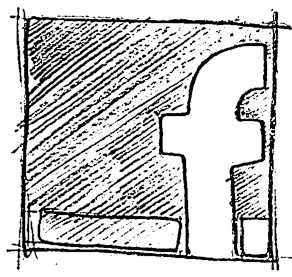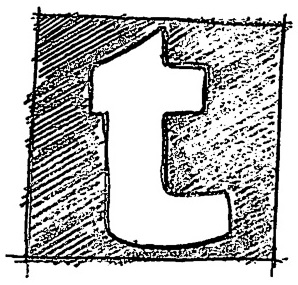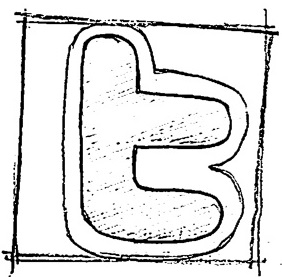by Hannah May
For the past four months, I've been doing most of my reading from a kindle. A kindle isn’t the kind of thing I would ever buy for myself, mostly because of the price tag but also because I really like everything that comes with reading actual books. I like browsing bookstores and picking something out on a whim if I’m feeling rich enough or, if I feel broke, waiting until I do feel rich enough to buy something I’ve been wanting. I like the way books travel in families and groups of friends. I like borrowing a book from my brother and finding the song lyrics he was working on in the margins, or borrowing an old book from my parents and finding a boarding pass from a business trip my dad took in ‘95 tucked in the pages. I like my signed copies, I like the way they look on my bookshelf or piled next to my bed. There is no denying that there’s a lot that is lost with a kindle. The kindle is also not the most asthetically pleasing gadget - it looks like something that might belong to a Star War's storm trooper. It's nowhere near as pretty as a collection of vintage hardbacks.
That being said, I was as skeptical of the arguments against the kindle as I was of the kindle itself. I enjoy Nicholson Baker’s obsessive prose style but I wasn’t convinced by his New Yorker article. A lot of anti-kindle sentiment seems focused on the more superficial aspects of reaing: how will other L-train riders know that I’m reading the new Murakami as opposed to New Moon? What about the library of Penguin classics that I’ve carefully arranged by color? Or it seems hysterically technophobic: these soulless machines are taking over everything! I’m totally attached to the corporeal incarnations of the books I’ve read and loved, but sentimentality doesn’t seem like a convincing enough argument against something that really does make reading easier. Books are not accessories and they’re not furniture. It should matter most what we read, not how we read it or what physical trophies we have to show for what we’ve read in the past.
So, when my parents got me a kindle for my birthday I was pretty stoked, if a little ambivalent. I was excited about having a new toy, but I was hesitant about giving up my paperbacks. Anything that makes books more portable I am 100% in favor of, if only for purely self-involved reasons. I am small and weak but a lot of the books I love the most are huge: 19th century “loose baggy monsters” or post-modern fatties packed with endnotes. There have definitely been times when I have opted for the paperback novella over the big guy because I didn’t feel like lugging the big guy from Brooklyn to Manhattan and back again. Also, with a kindle I can carry many books around at once. If I wake up in the morning in the mood for George Saunders but find myself sitting in a coffee shop after work wishing I had some Bronte it doesn't matter, because it all fits in my kindle. If I get the sudden craving to read something I don't already have but it's three in the morning and I'm in my apartment in Bushwick, all I need to do is press a few buttons and I have exactly what I want.
What’s more, reading a kindle (from a kindle? on a kindle? I still haven't figured that one out yet) doesn’t feel all that different from reading an actual book. Kindle screens aren’t backlit, so you don’t get any of that eyeball burn that comes from staring at a computer/TV/iPhone screen for too long. Once the novelty wears off, you get so lost in what you’re reading that you forget how you’re reading it. It really doesn’t make the fundamental experience of reading any different. Keith Gessen recently mentioned Powells bookstore in his blog, writing that "Powell’s is a physical bookstore and buying books from them helps keep them physical," assuming that keeping books in the format we're used to is something really worth trying to do. This attitude seems misplaced to me. No industry has ever benefited from trying to go against technological progress, and it seems that publishers would be better served by embracing the inevitable and trying to work to make ebooks as varied and worthwhile as printed books.
The only thing I don't like about my kindle is that it's still new enough to elicit reactions from strangers. I don't really like talking to strangers if I can help it, but I've become a reluctant kindle proselytizer on the subway, on airplanes, at coffee shops. One woman asked me if it was a Bible. "Well, it could hold a Bible. It could hold ten Bibles!" I told her. "Man," she said. "I gotta get computerized."
I do think the advent of the ebook is going to change how we read, and I think it’ll change for the better. It won’t change the content of what we read, or make reading any less meaningful. Of course, you could never digitize a book like House of Leaves, but I also think Danielewski could do something really wonderful with the ebook format. Give him about ten years.





2 comments:
dude the only book anyone commented on when I read it was the fountainhead, and then it was the worst kind of people. imagine reading the fountainhead on the kindle.
It seems like lots and lots of people I know here in Arkansas (in my age group, i.e. 50-somethings) have Kindles. I like the idea of being in a foreign country and not having to depend on the poor stock of the local English language bookstore, or the tattered copies of English books in the common room of the hotel that you're staying at...although I have read some pretty interesting books in that sort of situation, e.g. the autobiography of Lawrence Welk, in Malaga, that I might not have read otherwise. Well, anyway, I'm in the process of buying something that is SO EXPENSIVE that I can't even afford to think about a kindle for now... Probably in a few years they will only cost 50 bucks at Walmart.
Post a Comment